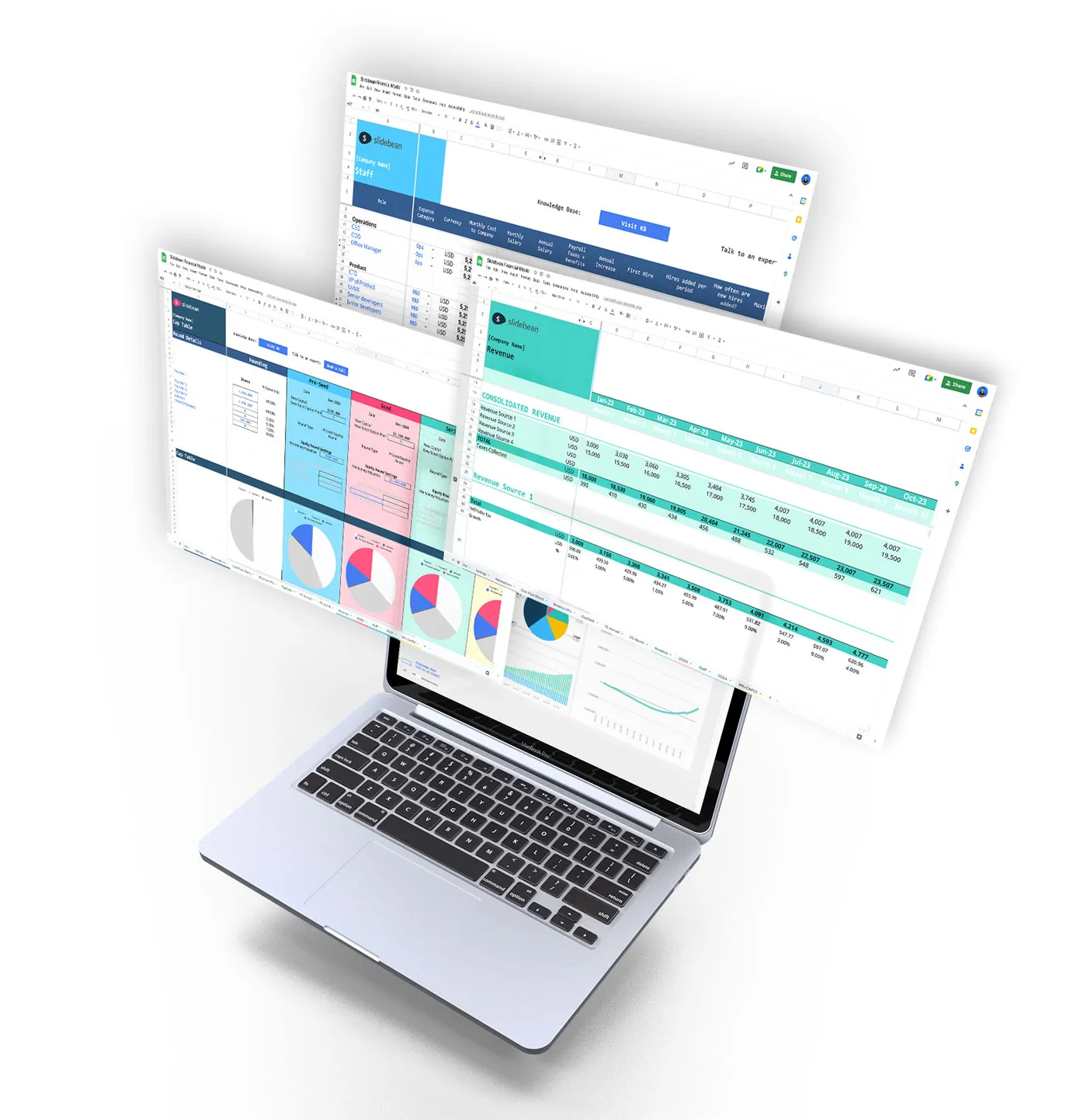FounderHub tools for starting a business and raising capital



We launched Slidebean in 2014 as a presentation design platform. Our vision of automating design and allowing anyone to create state of the art presentations has spread to over half a million user throughout this 4-year journey. It's been an exciting ride for everyone on the team, and new technologies are allowing us to evolve this vision even more (some exciting announcements coming in the next few weeks).
Slidebean has become a powerful and recognizable brand for consultants, marketing agencies and salespeople to supplement their presentation requirements and up their game when it comes to slide design; but our most important and most active audience has always been early and growth-stage startups, founders looking to create a pitch deck for angel investors, VCs, or to raise capital in some other way.
Through the years I've had the chance of speaking, personally, to hundreds of our users. Our customer team has listened to their feedback and crafted our roadmap around the features they wanted and needed most (like Presentation Analytics). As a team, we've probably looked at thousands of startup pitch decks (we only do when allowed to, of course) which has taught so much about the stages many of these companies are in, their struggles and their challenges.

Over the past few months, we've doubled down on our focus in these startup companies, we have listened more closely to their needs and began crafting a product to help these companies strive; to help these founders succeed. We've collected all these functions under the product we are announcing today: FounderHub.
The problem with startup accelerators
I've personally been through 5 different startup accelerators as an alumnus, and many more as a mentor, advisor or guest speaker. From the extremely early incubators in South and Central America to top of the line, world-renowned programs like 500 Startups.

A younger version of the Slidebean founders + our first employee in the 500 Startups office. We were Batch 11, Winter 2014-2015. Mountain View, CA.
We understand what these programs try to achieve, and we certainly wouldn't be the company we are today if it wasn't for everything the team learned in that process, and for the funds they provided us to keep trying. But not everyone gets the privilege of attending one of these programs, in fact, only about 1% of the founders who apply (by comparison, 6.6% of the people who apply Stanford get in).
SIGN UP
A STARTUP IS A RACE AGAINST TIME (AND TIME = MONEY)
…and we've sadly seen many fellow-entrepreneurs, often dear friends, lose that race and be forced to close their businesses.
It's ruthless prioritization that gets companies growing. It's the right guidance and somebody telling you everything you are doing wrong, to force you into the right track (BTW, that person was Poornima Vijayashanker for us, she quite literally forced Slidebean into the right track). The problem is, only a select few have access to these networks, or to that kind of advice.
Some initiatives have tried to cast a wider net with programs targeted at idea-stage companies, or focusing on founders outside of the main startup hubs of SF and NY; the problem is the further away you are from active and relevant startup ecosystems, the tougher it gets to find valuable help.
The worst of this accelerator phenomenon is the extremely large network of startup accelerators, many of which collect equity and even charge entrepreneurs for their 'acceleration services'. If a program believes in what you are doing, they should invest in you, not the other way around.
RELATED READ
HOW WE GOT INTO 500 STARTUPS
I also don't believe in the weight many accelerators put on their advisor network. Truth is, you'll get no more than a few hours per month from a mentor (if any at all), so they will contribute little to your company's success. Again, it's the figure of a partner or an EIR (entrepreneur in residence) that makes a difference, a person that sits with you twice a week, lives and breathes your business and isn’t afraid to say it like it is.
The challenge is for companies that don't (yet) make the cut for the 500 Startups, the DreamIt Ventures or the Techstars of the world. How do these founders get their companies off the ground?
The checklist approach of FounderHub
In the first few months after we launched Slidebean, we wasted hundreds of hours and thousands of dollars trying to raise capital to get our platform off the ground. Little did I know then how naive we were, and how raw our company was. We should have used that time to grow the business. Period.
RELATED READ
HOW WE SPENT OUR FIRST $250,000
The reality is that if you are pitching investors in the the Bay Area or in New York, you will need either,
- Fantastic, growing metrics on an MVP or early product.
- Founders with a background of startup hits, and hundred-million-dollar acquisitions.
If you don't fill any of those two requirements, then your chances of raising capital are slim, and SO MANY founders don't know this. My-2014-self included.
(Don’t believe me? Check this article from Oct-2018 by Elizabeth Yin).
We developed the FounderHub dashboard as a checklist to drive founders through this path, to help them understand the milestones that they need to reach and the stuff they should be focusing on depending on their company stages. We have also populated the platform with tools that we used as we grew the business and that have been key to our own success.



Think of FounderHub as tools for starting a business, all conveniently located in the same place, and curated by the same people that used them to build and grow their startup.
We were lucky enough to survive after two failed attempts at raising capital without having the right metrics, but it was a close call. We don't want companies making the same mistakes we did, or the same mistakes thousands of startups have made.
AN EVOLUTION OF SLIDEBEAN
Slidebean and FounderHub complement each other. We built it as a separate platform to ensure we funnel our startup audience to the right place and to avoid affecting the experience for the thousands of customers who use Slidebean for non-startup presentations.
We have a lot of fantastic ideas for what this venture could become, and we believe our users will find the integration of these two platforms a long-awaited aid in their entrepreneurial journey. While we expect many new businesses to discover us thanks to FounderHub, the truth is one business would not have existed without the other. It's the experience of talking to startups and helping them craft their pitch decks that led us here. To keep these customers active inside our platform, we need their companies to strive, so it is in our absolute best interest to do everything we can to help them grow.
WE WILL BE LAUNCHING FOUNDERHUB IN Q1-2019 AND ACCESS WILL BE COMPLETELY FREE FOR EARLY STAGE COMPANIES.
THERE WILL BE A ~$29 PLAN FOR STARTUPS IN LATER STAGES.
Access to the FounderHub Community is also available for early subscribers, and access to the beta version will be made available in the next few days.
You can sign up at founderhub.io.







